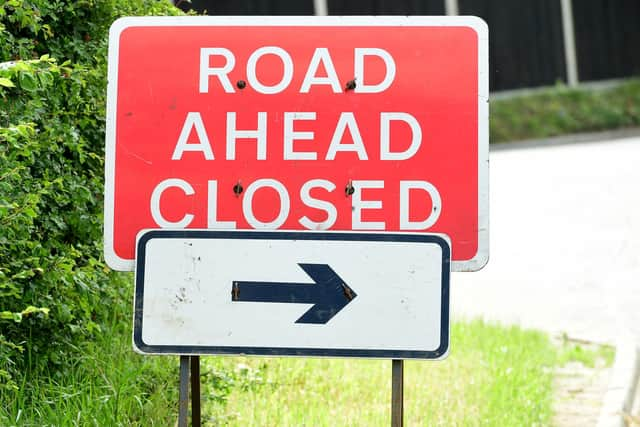Nottinghamshire has two 'substandard' bridges, figures show
and live on Freeview channel 276
The RAC Foundation said there is only so long councils can continue to “patch things up before bigger cracks literally start to appear” in road infrastructure.
Figures from the RAC Foundation show that of the 1,099 bridges in Nottinghamshire, two were substandard last year.
Advertisement
Hide AdAdvertisement
Hide AdSubstandard means bridges are either too weak to carry 40-tonne vehicles, or there is a weight restriction for environmental reasons such as a narrow bridge or narrow approach roads.


A year ago, the only two county bridges with weight restrictions were they Grade II-listed Whitewater Bridge, over the River Maun, at Ollerton and the Old Mill Dam Bridge, over the River Poulter at Cuckney, but the council said they were in good condition, “with no plans to replace or upgrade them at present”.
The council said it does not foresee any bridges being restored in the next five years.
Across Great Britain, councils said 3,090 bridges were substandard, 4.3 per cent of the total 71,925 bridges and down slightly from 3,211 substandard bridges reported the year before, 4.5 per cent.
Advertisement
Hide AdAdvertisement
Hide AdThe estimated one-time cost to clear the maintenance backlog on bridges was £5.9 billion.
Steve Gooding, foundation director, said: “The numbers illustrate how important it is for significant sums of money to be spent tackling at least the higher priority work.
“Whether it is potholes or bridges, there is only so long councils can continue to patch things up before bigger cracks literally start to appear.”
No collapsed bridges were reported across Britain last year, although there were 14 partial collapses.
Advertisement
Hide AdAdvertisement
Hide AdDavid Renard, Local Government Association transport spokesman, said bridges are a vital part of the transport infrastructure.
He said: “Not all bridges are the responsibility of councils, but for those that are, they are doing their best to ensure they are well maintained and withstand extreme weather.
“However, this is becoming increasingly challenging in the face of a backlog of nearly £12bn to bring our roads up to scratch.”
A Department for Transport spokesman said: “The Government is providing more than £5bn of investment over this Parliament to local authorities across England to support the maintenance of their local highway infrastructure, including the repair of bridges and the resurfacing of roads.”
